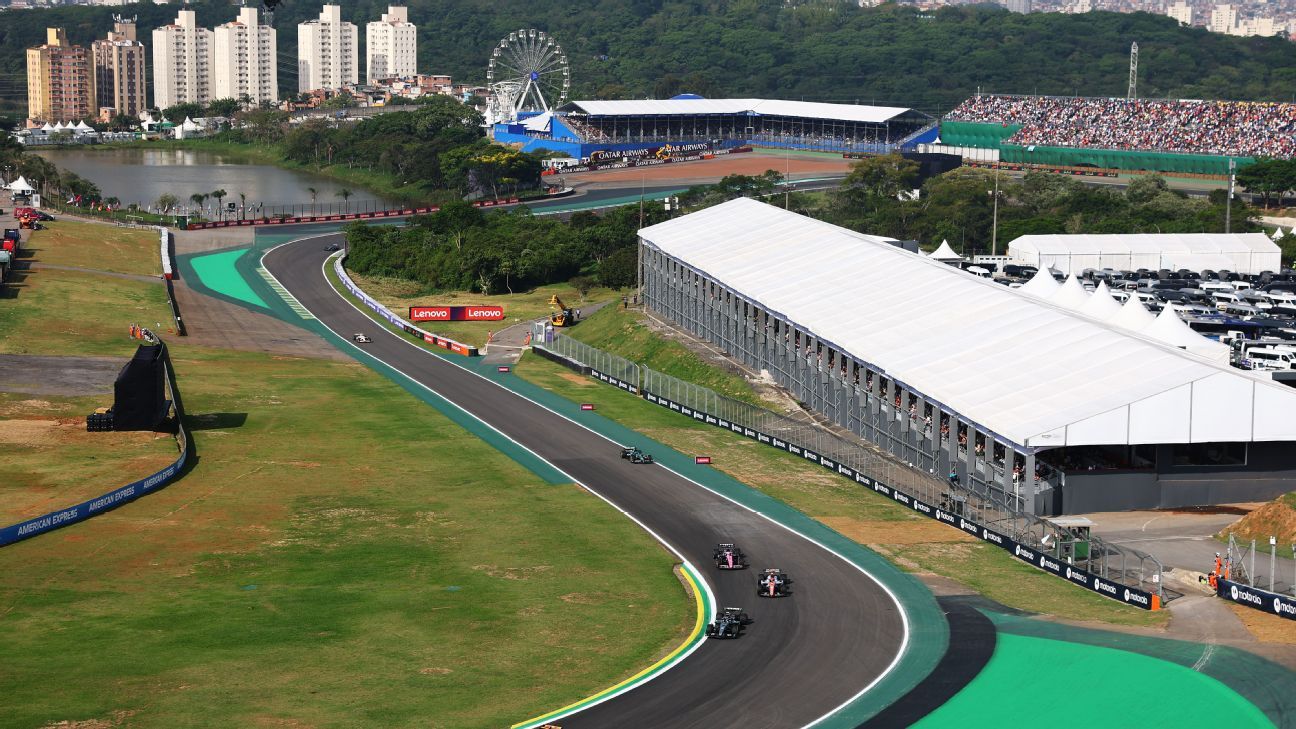SAO PAULO — A severe storm is barreling toward the Interlagos circuit, threatening to disrupt the Brazilian Grand Prix weekend and potentially reshaping the Formula 1 schedule for Saturday's sprint race and qualifying sessions.
According to Brazil's National Institute of Meteorology, an orange alert has been issued for heavy rain and high winds expected to strike the area starting early Saturday morning. The storm could bring major ramifications for the Sao Paulo Grand Prix, with the sprint race scheduled for 11 a.m. local time and qualifying for Sunday's main event set for 3 p.m.
The FIA, Formula 1's governing body, confirmed to ESPN that the worst of the weather is anticipated between 6 and 9 a.m., though a spokesperson cautioned that forecasts could shift overnight. "The worst weather is estimated to hit the circuit between 6 and 9 a.m., although a spokesperson was quick to point out that expectations could change overnight," the FIA told ESPN.
This timing coincides with the end of the paddock curfew at 6:30 a.m., when team personnel begin arriving to prepare cars for the day's activities. Officials have advised teams to keep garages closed outside of on-track sessions to minimize weather-related damage. The inclement conditions might extend throughout the day, raising concerns about delays or even postponements.
Lando Norris, who secured pole position for the sprint race, could see his advantage tested if the weather alters the schedule. Starting from the front, the McLaren driver is poised to capitalize in dry conditions, but rain has historically added unpredictability to races at Interlagos. Meanwhile, Max Verstappen of Red Bull, the current championship leader, starts the sprint from sixth after struggling in dry practice sessions.
Bad weather has long been a hallmark of the Brazilian Grand Prix, often leading to dramatic and memorable moments. Last year, Verstappen delivered what many consider one of the greatest drives in modern F1 history, charging from 17th on the grid to victory amid heavy rain that disrupted much of the field. "Brazil's race has become synonymous for bad weather, which has led to memorable and dramatic events for decades," as noted in reports from the circuit.
If the storm causes significant delays, the sprint race could be pushed back, impacting the qualifying session later in the afternoon. Sunset in Sao Paulo falls at 6:30 p.m., leaving a narrow window for rescheduling. In extreme cases, the FIA could move qualifying to Sunday morning, a scenario last seen at the 2019 Japanese Grand Prix when a typhoon wiped out Saturday's activities.
Should qualifying for the grand prix be impossible on Saturday, F1 regulations dictate that the grid would be set based on current championship standings. This would place Verstappen on pole, followed by Norris and other top contenders, potentially shifting the dynamics of the title fight. Verstappen currently leads the drivers' championship, with Norris trailing but closing the gap in recent races.
The Interlagos circuit, located in the southern outskirts of Sao Paulo, has a storied history in Formula 1, hosting the Brazilian Grand Prix since 1973 with interruptions. Known for its challenging layout and passionate fans, the track has seen iconic moments, including Ayrton Senna's emotional victories in the 1990s and Lewis Hamilton's comeback win in 2021. Weather has frequently played a role, turning races into tests of strategy and skill under adverse conditions.
Teams are preparing for various contingencies, with mechanics and engineers on high alert. The advice to keep garages shuttered aims to protect equipment from potential flooding or wind damage. Paddock insiders report that tire strategies could shift dramatically if rain persists, favoring drivers like Verstappen who have excelled in wet conditions in the past.
"Bad weather could benefit Verstappen again Saturday. The championship outsider starts the sprint from sixth position, having looked off the pace in dry conditions," according to ESPN's analysis of the situation.
As the storm approaches, the FIA plans to monitor developments closely, with updates expected throughout the night and into the morning. Any changes to the schedule will be communicated to teams and fans promptly to ensure safety and fairness. The potential for disruption adds an extra layer of excitement to what is already a pivotal weekend in the 2023 F1 season, with the championship battle heating up.
Beyond the immediate racing implications, the weather event underscores broader challenges in hosting global sporting events amid changing climate patterns. Sao Paulo, a metropolis of over 12 million people, often experiences intense seasonal storms, but the timing of this one could test the resilience of F1's logistics. Officials emphasize that safety remains the top priority, with protocols in place to evacuate areas if necessary.
Looking ahead, if the sprint race proceeds as planned, it will award points to the top eight finishers, potentially influencing the grand prix grid and the overall standings. Norris, aiming to challenge Verstappen for the title, needs strong performances in both the sprint and the main race to keep his hopes alive. Verstappen, seeking his fourth consecutive championship, could use any weather-induced chaos to his advantage, much like his heroics last year.
As fans and teams brace for the storm, the Brazilian Grand Prix once again promises to deliver the unpredictability that has made it a fan favorite. With the forecast evolving, all eyes will be on Interlagos come Saturday morning, where nature might just steal the show from the world's fastest drivers.
